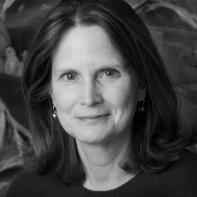By Lucy Bryan and Alexandria Lockett
With Jami Nakamura Lin and Toni Jensen
As a white woman from the American south, I’m no stranger to conversations about race. I’ve moved between passively listening to people consciously (and unconsciously) disclose their racist thoughts in private and observing those same individuals assert their “colorblindness” or “open-mindedness” in public. It’s uncomfortable. Before Donald Trump’s election into the U.S. presidency, I may not have been so honest with an audience of strangers about the racism I witness in my everyday life. It simply wouldn’t have been acceptable. However, the forces of hate are so vivid and destructive that we all have a clear choice to make.
Before I participated in what would become the racially controversial Women’s March on Washington, I reached out to a handful of fellow writers and invited them to a secret Facebook group to discuss how writing and communication can facilitate racial reconciliation in America. As a writer, I was especially curious about the power of words in an age of data deluge.
I was joined by three women I met during my time as a graduate student at Penn State University:
- Alexandria Lockett, a black American woman who composes and edits business and professional writing and also teaches writing, rhetoric, and media courses at Spelman College, a historically black women’s college in Atlanta, Georgia
- Jami Nakamura Lin, a Japanese-Taiwanese American woman who writes fiction and nonfiction and works at a public library in Chicago, Illinois
- Toni Jensen, a Métis (Native American) woman who writes fiction and nonfiction and teaches at the University of Arkansas and the Institute of American Indian Arts
I initiated this conversation in search of practical tips that could help me become a more effective ally for “the cause.” But as I reflect on my intentions, I realize how sterile the word “practical” sounds when applied to an effort intent on eradicating hundreds of years of human suffering and dissolving deep suspicion regarding cross-racial contact. What is the power of the word “practical?” It reveals an impulse to “fix” and has the rhetorical effect of severing human connection and emotion. It also seeks control.
Giving up control, then, was one of the primary lessons of this experience. As the deadline for this blog post approached, I sought to bring our conversation to a purposeful (and efficient) end. But Alex pointed out that “The conversation about race and writing never ends.” Indeed, our conversation expanded beyond that Facebook page and lives and breathes even now, as you read these words.
You may notice that this piece has two main authors, as well as two contributors. It is worth noting that the entire concept of authorship changed after our dialogue. In this introduction, we opted not to utilize the second person to demonstrate our collaboration because Alex recognizes me as the lead author of the work. It began as my vision, and she has happily disrupted it. You will notice her voice in the dialogue and her authorship of the conclusion.
The act of sharing the responsibility of editing a text and communicating about that process to an audience is still rather alien to a predominantly white readership. It’s not neat, it’s not “practical,” and it requires giving something up. Because writing is something we do, we have the power to determine how we relate to it and how we own it. Writing need not be a solitary or detached endeavor; instead, it can be an act of relating.
What follows are edited excerpts that highlight some of the key themes that emerged in our month-long conversation. These passages are not simply the selective gaze of the white single-author. Instead, Alex and I worked together to identify what we both perceived to be important parts of the dialogue, and we edited each other’s work in real-time. The other contributing authors trusted us with this editorial job, and they remained involved, providing feedback and approving the final version before we submitted it.
As you read through our conversation, I urge you to consider: What happens when women writers representing different races talk about how race affects writing and communication? What kinds of writing become possible when one writer decides to confront how race and racism affect her understanding of language and power?
*
Lucy Bryan: I’d like to start by sharing what happened the first time I attempted to directly write about race. I was in my first year of graduate school, and I was grappling with the legacy of racism in my white, southern family. My ancestors were slave-owners. They were involved in killing and expelling native peoples from central Florida. My family supported (and continues to support) policies and social structures that have helped to maintain economic and social divides along racial lines.
Although my parents felt a strong obligation to the poor (who, in our city were predominantly black) and contributed time and money to local charities and social services, this didn’t change my feeling of complicity in the racist systems I inherited. So, I wrote an essay about my awareness of that injustice, my outrage, and my guilt, and I submitted it to my creative writing workshop. The essay was roundly criticized for being static: Nothing happened. I wasn’t doing anything to address the problems I wrote about.
Seven years later, writing about race as a white person still feels complicated and risky, and I’ve gravitated to other, easier topics—often reasoning that I should let marginalized people speak for themselves. But that seems like faulty logic. I’d like to join the conversation, to use what little power my platform as a writer affords me to combat injustice. I’m willing to take the risk of failing, or messing up, or exposing my own ignorance. But I’d also like to be responsible, informed, and sensitive. I’d like to avoid causing harm. So where do I start?
Alexandria Lockett: I’d like to know more about how you feel about and recognize the boundaries that your family taught you to respect. For example, how were you taught that being white meant having a space? Who did you see crossing “the line?” What is your most memorable experience, even if it wasn’t of yourself. What were your/their actions, and what happened to them?
Lucy Bryan: First of all, there was a very clear physical boundary. I lived in an upper-middle class, nearly all-white neighborhood near downtown Orlando. A highway called Colonial Drive separated my neighborhood, “College Park,” from the low-income, high-crime, mostly black neighborhood.
The public schools in my neighborhood were very diverse, as a result of a busing policy aimed at integrating the schools—but I rarely (if ever) saw the non-white children from my classes at birthday parties or sleepovers, and I frequently heard parents complain that the bused-in students were bringing down the quality of the schools. I don’t think I began questioning this dynamic until high school, when I called one of my black classmates a friend, and she laughed at me and said, “When have we ever hung out outside of school? When have you ever invited me over to your house?” Things changed after that—I did start inviting school friends of other races to my house (though I was never asked to cross to their side of that boundary). My parents welcomed those friends just as they would my white friends—and as far as I know, my neighbors never protested this change. But my behavior was definitely not the norm.
Recounting these stories makes me feel shame. I also fear that exposing this reality (portraying “my kind” in a bad light) will result in some kind of retaliation—against me or my family members. It also makes me realize how all-white spaces make racism easy. No one has to cultivate self-awareness or a sensitivity to injustice, because they don’t have to see it—and when someone crosses the boundary, whites can frame themselves as victims and non-whites as violators.
Alexandria Lockett: Your real life living with race reads like fiction: colonial drive, highway division that moves your bodies from top to bottom like the highs and lows of color-coded semantics of American Southern race semantics. I don’t think writing about race is capable of moving forward if we don’t honestly reflect about how we “learn race” through our literal contact with both “our own” And “others.” Feelings are not facts, as my hero RuPaul frequently argues.
Toni Jensen: Lucy’s response about childhood and place is especially interesting to me since I lived in the College Park neighborhood of Orlando for a few years but long after she did. There still is a working class section, which is under the freeway, the I-4, which is where I lived with my family. Our neighbors were from everywhere, and I loved living there—if not for the noise and pollution of the I-4. I had a cough the whole time we lived there, for example, because of the pollution from the traffic.
I understand the gated nature of Orlando and of most cities in the U.S. The boundaries are drawn early and fixed. They shift only when proximity to downtown, to the center, becomes something considered desirable. Then the undesirables are pushed under the freeway. That’s America. America is founded on a land-grab. America is synonymous with the capricious, with the non-sensical boundary-making endeavor that we call ‘progress.’ So many people view these borders as ‘natural,’ as ‘always.’ But they are constructs that serve the few. We’re seeing more awareness of this idea post-election, with maps of voter districts making the rounds, with ‘gerrymandering’ making the lexicon.
Indigenous people, including the Métis, have known about gerrymandering since always. All reservation and reserve borders are capricious, are the result of gerrymandering. No treaty with Indigenous people ever has been fully honored. So when I lived in Orlando, I was more comfortable living under the freeway than I would have been in a gated community—except for the coughing.
Jami Nakamura Lin: I’m interested in participating in this conversation partially because I’m struggling, like Lucy, with what to do now, in this current political climate.
I’m a fourth-generation (yonsei) Japanese-American on my mother’s side—my mother was born and raised in Chicago, my grandfather was born and raised in California, but was placed in the incarceration camps during World War II, and my grandmother was born and raised in Oahu. My maternal great-grandparents came over from Japan/Okinawa at the turn of the 21st century. My father and his family, on the other hand, emigrated from Taiwan to Chicago when he was 11, in the early 1970s.
As an upper-middle-class Asian-American, I know I possess a lot of privilege in comparison to most people of color—the racism I experience, while frequent, is mostly of the microaggressive variety. Japanese-Americans (particularly in the wake of WW2) have a history of assimilation, of trying to keeping our heads down and skate under the radar. I am haunted by the images and stories of my grandfather living in those incarceration camps, of the feeling that this, too, is not too far away from happening today. And still I—and many in my communities—still drift towards complacency.
Lucy Bryan: So, what are useful ways of channeling the knowledge that emerges from honest reflection about race? And is writing is an effective means of fighting racism (especially for white writers)? I sometimes wonder whether the time and energy that I pour into writing be better spent doing something else—like advocating for local policy changes, volunteering, or even giving financial support to writers or activists of color? So I guess I’d like to know how you all justify the time you spend writing? In particular, why does writing about race matter (for writers of all races)?
Alexandria Lockett: This is a question of individual excellence. I do what I do well in the world, and spend my time on those actions that are capable of producing the most transformation. In other words, wherever we find ourselves being most generous is where we should unapologetically spend our time. Documenting human experience is a very important activity if truth is actually your master. My historical status as a non-human whose ability to exercise agency through intellectual activity has literally been against the law and continues to go unacknowledged, unrecognized, and restrained, has been resisted by brave women whose courage and conviction and FAITH in their ability to transform their image. I owe a tremendous cognitive debt to their sacrifices. My ancestors were in touch with conjure, which is most likely one of the reasons that I exist. There is so much knowledge to be remembered, which is why I seek knowledge in human symbol systems. I feel no debt to society, no obligation to rescue evil from hell. We are arranged here in this spatio-temporal location as extensions of all that came before and all that will be. We all have the power to change perception including our own. As a black woman, I fight racism by expressing my excellence.
Lucy Bryan: It would be dishonest to say I don’t care about being an excellent and successful writer—ideally, I’d like to use my excellence to fight racism and injustice, like you, Alex. However, I think that will happen in a different way for me than it does for you, because our contexts are different. I’m curious—do you think, for white writers, it ever makes sense to directly “write about race as the object of revelation,” or is it better to deliberately inhabit contexts in which “documenting human experience” might produce transformation?
Alexandria Lockett: I think that we perceive “excellence” very differently. I’m defining excellence in the sense that Aristotle does in his Nichomean Ethics—a text that has deeply influenced my articulation of ethics. The other text was Ayn Rand’s The Fountainhead. Yes—I can attribute much of my reasoning about motivation to this book, which made me very critical of the kind of altruism that white neoliberalism thrives on exerting, the kind of “charitable giving” that actually reproduces the very inequality that many seek to eradicate.
If you are a white person and you are conscious of the biases of your system AND those biases advantage you, I think it would be honorable to put your effort into developing the kind of merit structures that are more inclusive and challenge you to be as good as everyone else if everyone else had a fighting chance, as well. This is what, in my opinion, some white people don’t get. Meritocracy arguments [anti-affirmative action discourses], which reinforce individualism and the bootstraps narrative, are flawed because they tend to privilege white mediocrity by abolishing mechanisms that would make competition more fair. And of course white people would not be as competitive in a system that others have had to work twice as hard to compete in because they would not share the same knowledge as their competitors. Likewise, the others are trying to gain the same kind of ACCESS (not knowledge) that their white counterparts are able to gain by virtue of someone sharing information with them about the PROCESSES OF ADMISSION that grant a person contact with the credentialing procedures necessary for operating with social (and often legal) approval.
I would like to operate in a true meritocracy where the competition has been leveled to where you and I, both writers seeking to be excellent writers, had the same access to expressing that excellence for others to observe our demonstration of the craft. To your point, we need to redefine what the “top” is, as well as establish certain thresholds of access that might guarantee the maximum amount of participation.
I want happiness. I don’t want to suffer. Who can help us make the cleanest air, most productive soil, and the purest water? The most delicious food and the best dancing and the finest singing and the most gorgeous love-making? I would love to devote all the rest of my days competing for those purposes. And I do. That is my resistance. In cultivating the power of our attraction and unapologetic desire to LIVE through the making of more LIFE is to live sustainably. To desire for us all to have that chance, and truly want it and will it and create opportunities for others to do so is to do so through antiracist and decolonial methods.
Lucy Bryan: What I want to be is an ally—not a savior or a crusader (I hate that word, but it does illustrate the point, doesn’t it?). That said, it’s easy to talk in abstractions and metaphors and much harder to figure out what allyship actually looks like in terms of what I do, write, or even teach.
Jami Nakamura Lin: For the privileged (and in this case, usually white people)—I think my humble opinion is that writing is, most of the time, *not* enough. I can’t say this cut and dry across all cases and situations, but I am usually of the opinion that white writers writing about race primarily helps other white people.
Oftentimes, white people writing about race just obscures/overtakes POC writing about race in different venues—as I recently stated in an online writer’s group. I was appreciative of the support there, but there was also a huge backlash, and several condescending comments by white women writers towards writers of color in the thread. One was something like: “I’ve been writing articles since before you were born.” The patronizing tone gutted me, reminded me that POC voices, even in these supposedly supportive groups, are only important as long as we are not seen as trying to to take space away from white writers.
Unfortunately, in my limited experience, white writers, when it comes down to it, will choose their success over deconstructing power structures. (To be fair—I would have extreme difficulty not choosing my own writing excellence/success over deconstructing a power structure, except that as a woman of color, I don’t have to make this choice—they are one and the same.)
For people in the minority, for people of color, depending on their situations, just any type of speaking / moving / being in the world is an act of resistance and empowerment and deconstruction, and so I would not ask for the same things as I would a white person, which is not to say that I think we should stand idly by. I must do more, I can do more, I should do more.
Lucy Bryan: Alex, what you seem to be saying is that who we are is what counts. In other words, if we cultivate kindness, generosity, humility, excellence, and a love of justice within ourselves, then those traits will radiate into our relationships, our writing, and whatever it is we do. This resonates with my inner Buddhist—the part of me that believes being is more important than doing. But like Jami, I have an inner critic that says, “I must do more, I can do more, I should do more.” I look at my life and my writing, and I wonder: Where is the work the work of justice? If it were a motivating force, a part of my identity and essence, I think my life would look different. Wow. I need to chew on that for a bit.
Alexandria Lockett: Lucy, your conflict is a consequence of living a “segregated” life. If you have to fight to make time to give up privilege it isn’t going to ever be enough. I’m an advocate of settlement houses and miscegenation because I think integration depends on racial mixing—socially and otherwise. But even this model could be terrible if people hate their own race.
Meanwhile, the cultural aspiration to whiteness is almost always an unspoken goal of antiracism. This “give them what we have” philosophy is hilarious. Westerners are some of the most spiritually bankrupt people on earth…!!!!! I’m not saying white people can’t do great things, but I am saying that their accomplishments are usually appropriated from other cultures and the (lack of) recognition of those other cultures as the intellectual origin of creation (and as the rightful inheritor of its profit) is at the center of the mechanisms of racism by all measures.
When antiracist ideologies are clearer about their outcomes, more will get done. So far, all I see are missionary models that reproduce not effectively fight against racism. At the least, we have to ask ourselves what our behavior would look like if we were really antiracist… what kinds of values would we have? What aesthetics would be beautiful? Who would we make love to? What kinds of social relationships would we cultivate? How queer would they be?
Lucy Bryan: So, I’m curious to hear you thoughts… For white writers who are serious about fostering a more integrated literary community, what do you think are some best practices? What are some questions they should ask before pressing “submit”? How might they recognize good opportunities to make space or cede space? How might they support or amplify the voices of non-white writers? And ultimately, what is your vision for anti-racist writing, publishing, and/or reading? In other words, what would you like to see writers of all colors striving for, working toward, and advocating?
Jami Nakamura Lin: My vision for anti-racist writing/publishing/reading is that
a) we need people on the front lines in the industry itself. In the article in the Guardian I posted on my own FaceBook page, Yaa Gyasi says: “It is not enough to go to the protest, if when you go home nothing in your life changes. If black lives (Muslim lives, women, etc) matter in public, in your tweets and on Facebook, during the protest, they must also matter in private and in practice, in how and what you teach your students, in who you hire at your office, what you feature in your lifestyle blog, your magazine, in who sits in the writers’ room and director’s chair.”
To extrapolate this to our sector, it matters so much who the industry hires as book reviewers. As editors. As interns. As marketers. I think back to the brouhaha over the When We Was Fierce YA book—how all the pre-publication press loved it, and then when the ARCs went out many reviewers of color rightly pointed out all the racism laced in the book. The publisher pulled it, but they pointed out that all the early reviews by School Library Journal, etc. were all laudatory. They said that, I think, to express their confusion, and in defense. However, it just goes to show that this is what happens when all our gatekeepers are white!!! Until we have people of color in these positions of power, making decisions over the publishing industry, I don’t think much will change. It’s not enough for publishers to give lip service to social justice ideas, to voice their support for anti-racist ideals: PUT A DAMN PERSON OF COLOR IN THE CHAIR. We don’t need more white people speaking nice. We need people of color at all levels.
b) Outside the book industry, we (your Average Joe reader) need to promote more books by people of color, which means reading more books by people of color. For example: I read 80 books for pleasure (outside of my library work and my research for my book) last year—and only 7 were by people of color. This sucks. This is my failure. And if I, as an Asian-American writer, am not doing this—it’s so easy to understand why other people don’t. That doesn’t make it right. I try to do little things. I’m in charge of creating book displays at my library, so I make sure to always put predominantly POC writers there. I suggest these books to patrons. But it’s not enough; I’m not doing enough; I need to do more, be more.
c) We need to check whose articles we share. Do an autopsy on the gender breakdown of the articles you share on social media, do a race/ethnicity breakdown. Who are you tweeting? Who are you posting? I think it’s easy to not see overall trends when we do all this so piecemeal—I would never have known I read so few authors of color last year if Goodreads didn’t tell me. We just need to take a good hard look at ourselves.
d) Continuing from above, DATA! More data! I’d like a VIDA-style count for race. They have smaller studies on this, but I think a wide-reaching organization with this focus would do wonders, I think—to have hard facts to prove to the industry how poorly it is (we are) doing.
Alexandria Lockett: I’m not sure how to answer the question until I know the ends towards which this conversation will be put. For me, a conversation is great, but a community is better. The conversation about race and writing never ends. It is a living breathing thang as long as we are intent on “fixing it.” Antiracism requires radical approaches to showing and taking care. Language in action is communication and we should fully appreciate the depth of its consequences on what is possible in the world. We should wonder if all the words in the world will help us conjure the actions that are so obviously needed. I have no authors to recommend, no vision to inspire. I only ask us to observe how we show love and to whom, how we feel love and from whom, and to let love possess us more often and expand as far as we will let it take us.
Toni Jensen: I would like to see all writers of color writing whatever they want to write and getting published widely and well. It’s not the writers or the writing that needs to shift—it’s the publishing world. So the question for me isn’t what the writers need to do—they’re doing it and doing it and doing it.
*
This conversation illustrates the unfolding process of four women willing to talk about how racial identity and perceptions of race relate to a writer’s practices. Our motivations for having this dialogue were various. When Lucy approached me about having this conversation, I immediately felt conflicted about participating. First, I didn’t want to do all the work. Next, I didn’t want to be placed in a position where I would tell the white person that everything will be ok, or intellectually flagellate/pleasure them with reminders of their guilt. I certainly didn’t want to have another superficial conversation about passively resisting fascism through more talk about talking about talking. Basically, I didn’t want to be put into the position of Mammy, Sambo, or a Magic Negro.
However, I decided to participate because I consider Lucy to be one of my more interesting colleagues. She has never hesitated to reach out to me, or speak to me outside of our professional engagements. We’ve always had a good rapport, and she never hesitated to “keep it real” about her life, her love for her family, her passions, and her goals in life. In other words, she seemed like a rare person to connect to because I observed moments of raw honesty in our prior conversations. Trusting anyone is difficult to do. If I did not actually know Lucy beforehand, my skepticism towards a white woman’s motivations to discuss race for the purposes of sharing our conversation with a wider public would have been declined. However, she seemed open to letting the conversation unfold, and I liked that other races and ethnicities of women would be involved too. Black and white tends to almost always dominate racial politics in America. We need to hear more from our sisters of the rice, corn, and plantain.
As a black woman, talking about race is simply part of my life. It is not an optional activity. It is not something that I do because I suddenly notice the prevalence of injustices that don’t inconvenience me too much. Of course, I have a much different relationship to the term “race” than other people do. For me, discussing the social, informatic phenomenon of race does not mean inciting difference for the sake of trying to be disruptive. It also doesn’t mean being impolite or rude. While I am always aware of race as a social construct, I am also aware of race as a cultural marker that signifies the fact of very unfortunate colonial pasts that need to be remembered—not forgotten—if they are to be learned from. History is most useful living in our memory to increase the substance of our souls, not played out in our everyday lives in a tragedy of blame and regret.
Throughout the conversation, we may have offended some people by discussing white people as a problem. To clarify, I do not hate white people. I greatly abhor whiteness. From my perspective, whiteness is a manner of behavior that is enacted through its declaration of impartiality and lack of existence. It is a denial of belonging to any place or culture. Whiteness is a convenient escape from history that enables refuge from conversations about responsibility to it. Many people like to talk about being white as a privilege. That may be so for persons who have both fair skin and practice whiteness. However, a person need not have white skin to perform whiteness. Whiteness is less about color, per se, and more about a condition of suffering from color-blindness. If you belong to no time, no place, no people, your ability to connect to others will be stifled by an inability to remember anything about what it means to overcome conflict caused by racial and gender separatism.
We know that whiteness is destructive because even as those who seek to stop talking about race think that they are acting on behalf of a greater good, the fact of white (skin color) power advocacy exposes the cultural significance of whiteness. Whiteness, for a white nationalist, means that you should be willing to commit acts of murder against “others” to affirm that your system of law and order will allow you to get away with it. For them, a white person literally getting away with murder is simply a time-honored tradition of white culture, and a mere demonstration of the unabashed supremacy of the “white race.” Those who ignore race as proudly as a white supremacist lives by it hold no one accountable for social problems. Whiteness is a see no evil, hear no evil mentality. When a person sees “no color, or no race,” they empower those who see race and gleefully practice racism because they rob us of a language to even talk about race.
In sum, our discussion was a rare one. We are not “famous authors” who will draw readers because of our canonized names. We’re women who write in all kinds of ways. We produce information, as well as help others find information and find words that match their desires, intentions, and goals. This work binds us together because we see a lot about life that other people casually dismiss. In the business of writing and communication, we observe and feel the anxiety, embarrassment, and frustration when people lack the ability to express not just what they want, but how they feel about what they want. What is not-so-obvious about the public disclosure of some of our dialogue is that women’s talk tends to be very invisible. We are quite used to women guiding us and assisting us with our needs, but it is not often to glimpse how they communicate about their work. Before our audience is tempted to filter our experiences through the lens of their own lives, I hope that our readers appreciate the emotional work women writers, teachers, librarians, researchers, and consultants do. We are not perfect, nor should we be expected to be. As artists, we simply want to be free to imagine a better world and do what we can to manifest it.
AUTHOR BIOGRAPHIES:
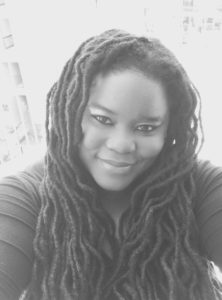 Dr. Alexandria Lockett is currently an Assistant Professor of English at Spelman College in Atlanta, Georgia where she teaches courses in digital writing and rhetoric, business and professional writing, as well as grammar and style. At Spelman, she co-directs the Writing Intensive initiative in collaboration with the Comprehensive Writing Program. She also serves as a co-coordinator of the Pulitzer Campus Consortium, and faculty mentor to the independent student-led literary magazine publication Aunt Chloe. Her research focuses on the conceptual and causal relationship between race, surveillance, and information leaks across media. She has presented work on this subject as it applies to various learning spaces at the most recent CCCC and RSA conferences, as well as in the role of keynote speaker at the Gulf Coast Student Success Conference (Brazosport, TX) and the Truman State University English Senior Seminar Conference (Kirksville, MO). Dr. Lockett’s was recently awarded an ACS Faculty Grant (2015) to organize a faculty development symposium entitled, “Integrating Wikipedia in Writing-Intensive Courses at ACS Colleges,” and has published work in Composition Studies, Enculturation, and the McNair Scholarly Review. @MzJaneNova (Twitter)
Dr. Alexandria Lockett is currently an Assistant Professor of English at Spelman College in Atlanta, Georgia where she teaches courses in digital writing and rhetoric, business and professional writing, as well as grammar and style. At Spelman, she co-directs the Writing Intensive initiative in collaboration with the Comprehensive Writing Program. She also serves as a co-coordinator of the Pulitzer Campus Consortium, and faculty mentor to the independent student-led literary magazine publication Aunt Chloe. Her research focuses on the conceptual and causal relationship between race, surveillance, and information leaks across media. She has presented work on this subject as it applies to various learning spaces at the most recent CCCC and RSA conferences, as well as in the role of keynote speaker at the Gulf Coast Student Success Conference (Brazosport, TX) and the Truman State University English Senior Seminar Conference (Kirksville, MO). Dr. Lockett’s was recently awarded an ACS Faculty Grant (2015) to organize a faculty development symposium entitled, “Integrating Wikipedia in Writing-Intensive Courses at ACS Colleges,” and has published work in Composition Studies, Enculturation, and the McNair Scholarly Review. @MzJaneNova (Twitter)
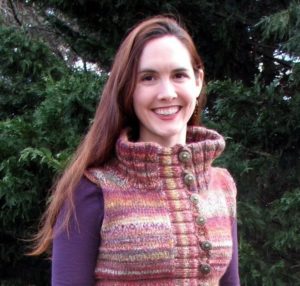 Lucy Bryan lives in Harrisonburg, Virginia, a vibrant city with a diverse population of refugees, migrant workers, Mennonites, farmers, scholars, and students. Bryan serves on the faculty of the Writing Center at James Madison University. She holds a B.A. in journalism from the University of North Carolina at Chapel Hill and an M.F.A. in creative writing from Penn State University. Her essays and short fiction have appeared in Quarterly West, The Fourth River, Nashville Review, and Superstition Review, among others. She is currently working on an essay collection that uses landscape, ecology, and natural history as lenses for examining experiences of loss and discovery.
Lucy Bryan lives in Harrisonburg, Virginia, a vibrant city with a diverse population of refugees, migrant workers, Mennonites, farmers, scholars, and students. Bryan serves on the faculty of the Writing Center at James Madison University. She holds a B.A. in journalism from the University of North Carolina at Chapel Hill and an M.F.A. in creative writing from Penn State University. Her essays and short fiction have appeared in Quarterly West, The Fourth River, Nashville Review, and Superstition Review, among others. She is currently working on an essay collection that uses landscape, ecology, and natural history as lenses for examining experiences of loss and discovery.
 Jami Nakamura Lin is a Chicago-based writer whose work highlights intersections of ethnic identity, faith, and mental illness. As a recipient of a fellowship from the National Endowment of the Arts and the Japan-U.S. Friendship Commission, she will spend this spring and summer in Japan, researching and writing a novel based on local folklore. Her book project investigates the traditional figure of the oni (roughly translated: demon) both literally and as mythological metaphor for the outsider. She received her MFA in creative nonfiction from the Pennsylvania State University, and her work has appeared in the Passages North, [PANK], the Baltimore Review, and other magazines. @jaminlin
Jami Nakamura Lin is a Chicago-based writer whose work highlights intersections of ethnic identity, faith, and mental illness. As a recipient of a fellowship from the National Endowment of the Arts and the Japan-U.S. Friendship Commission, she will spend this spring and summer in Japan, researching and writing a novel based on local folklore. Her book project investigates the traditional figure of the oni (roughly translated: demon) both literally and as mythological metaphor for the outsider. She received her MFA in creative nonfiction from the Pennsylvania State University, and her work has appeared in the Passages North, [PANK], the Baltimore Review, and other magazines. @jaminlin
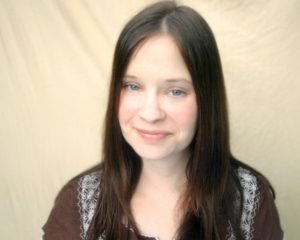 Toni Jensen is the author of the story collection From the Hilltop. Her stories have been published in Ecotone, Denver Quarterly, Iron Horse Literary Review and elsewhere. She teaches in the Programs in Creative Writing and Translation at the University of Arkansas and in the low residency MFA program at the Institute of American Indian Arts.
Toni Jensen is the author of the story collection From the Hilltop. Her stories have been published in Ecotone, Denver Quarterly, Iron Horse Literary Review and elsewhere. She teaches in the Programs in Creative Writing and Translation at the University of Arkansas and in the low residency MFA program at the Institute of American Indian Arts.
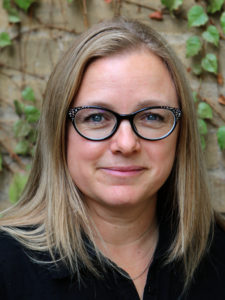
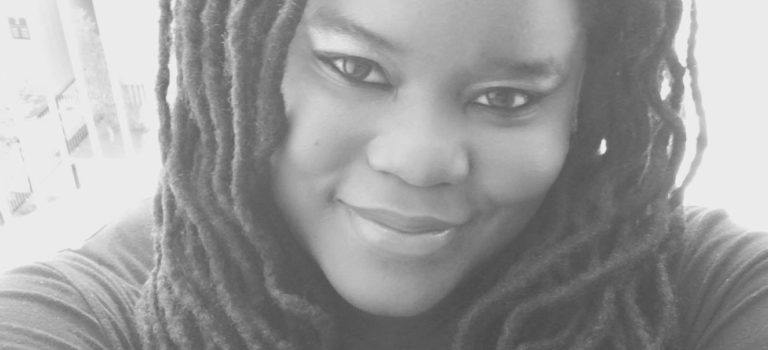
 Dr. Alexandria Lockett is currently an Assistant Professor of English at Spelman College in Atlanta, Georgia where she teaches courses in digital writing and rhetoric, business and professional writing, as well as grammar and style. At Spelman, she co-directs the Writing Intensive initiative in collaboration with the Comprehensive Writing Program. She also serves as a co-coordinator of the Pulitzer Campus Consortium, and faculty mentor to the independent student-led literary magazine publication Aunt Chloe. Her research focuses on the conceptual and causal relationship between race, surveillance, and information leaks across media. She has presented work on this subject as it applies to various learning spaces at the most recent CCCC and RSA conferences, as well as in the role of keynote speaker at the Gulf Coast Student Success Conference (Brazosport, TX) and the Truman State University English Senior Seminar Conference (Kirksville, MO). Dr. Lockett’s was recently awarded an ACS Faculty Grant (2015) to organize a faculty development symposium entitled, “Integrating Wikipedia in Writing-Intensive Courses at ACS Colleges,” and has published work in Composition Studies, Enculturation, and the McNair Scholarly Review. @MzJaneNova (Twitter)
Dr. Alexandria Lockett is currently an Assistant Professor of English at Spelman College in Atlanta, Georgia where she teaches courses in digital writing and rhetoric, business and professional writing, as well as grammar and style. At Spelman, she co-directs the Writing Intensive initiative in collaboration with the Comprehensive Writing Program. She also serves as a co-coordinator of the Pulitzer Campus Consortium, and faculty mentor to the independent student-led literary magazine publication Aunt Chloe. Her research focuses on the conceptual and causal relationship between race, surveillance, and information leaks across media. She has presented work on this subject as it applies to various learning spaces at the most recent CCCC and RSA conferences, as well as in the role of keynote speaker at the Gulf Coast Student Success Conference (Brazosport, TX) and the Truman State University English Senior Seminar Conference (Kirksville, MO). Dr. Lockett’s was recently awarded an ACS Faculty Grant (2015) to organize a faculty development symposium entitled, “Integrating Wikipedia in Writing-Intensive Courses at ACS Colleges,” and has published work in Composition Studies, Enculturation, and the McNair Scholarly Review. @MzJaneNova (Twitter) Lucy Bryan lives in Harrisonburg, Virginia, a vibrant city with a diverse population of refugees, migrant workers, Mennonites, farmers, scholars, and students. Bryan serves on the faculty of the Writing Center at James Madison University. She holds a B.A. in journalism from the University of North Carolina at Chapel Hill and an M.F.A. in creative writing from Penn State University. Her essays and short fiction have appeared in Quarterly West, The Fourth River, Nashville Review, and Superstition Review, among others. She is currently working on an essay collection that uses landscape, ecology, and natural history as lenses for examining experiences of loss and discovery.
Lucy Bryan lives in Harrisonburg, Virginia, a vibrant city with a diverse population of refugees, migrant workers, Mennonites, farmers, scholars, and students. Bryan serves on the faculty of the Writing Center at James Madison University. She holds a B.A. in journalism from the University of North Carolina at Chapel Hill and an M.F.A. in creative writing from Penn State University. Her essays and short fiction have appeared in Quarterly West, The Fourth River, Nashville Review, and Superstition Review, among others. She is currently working on an essay collection that uses landscape, ecology, and natural history as lenses for examining experiences of loss and discovery. Jami Nakamura Lin is a Chicago-based writer whose work highlights intersections of ethnic identity, faith, and mental illness. As a recipient of a fellowship from the National Endowment of the Arts and the Japan-U.S. Friendship Commission, she will spend this spring and summer in Japan, researching and writing a novel based on local folklore. Her book project investigates the traditional figure of the oni (roughly translated: demon) both literally and as mythological metaphor for the outsider. She received her MFA in creative nonfiction from the Pennsylvania State University, and her work has appeared in the Passages North, [PANK], the Baltimore Review, and other magazines. @jaminlin
Jami Nakamura Lin is a Chicago-based writer whose work highlights intersections of ethnic identity, faith, and mental illness. As a recipient of a fellowship from the National Endowment of the Arts and the Japan-U.S. Friendship Commission, she will spend this spring and summer in Japan, researching and writing a novel based on local folklore. Her book project investigates the traditional figure of the oni (roughly translated: demon) both literally and as mythological metaphor for the outsider. She received her MFA in creative nonfiction from the Pennsylvania State University, and her work has appeared in the Passages North, [PANK], the Baltimore Review, and other magazines. @jaminlin Toni Jensen is the author of the story collection From the Hilltop. Her stories have been published in Ecotone, Denver Quarterly, Iron Horse Literary Review and elsewhere. She teaches in the Programs in Creative Writing and Translation at the University of Arkansas and in the low residency MFA program at the Institute of American Indian Arts.
Toni Jensen is the author of the story collection From the Hilltop. Her stories have been published in Ecotone, Denver Quarterly, Iron Horse Literary Review and elsewhere. She teaches in the Programs in Creative Writing and Translation at the University of Arkansas and in the low residency MFA program at the Institute of American Indian Arts.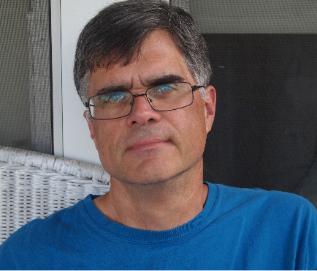 Recently, in my graduate fiction workshop, we were chewing over that vexing subject of the artist’s role in human society. Our discussion stemmed from having just read
Recently, in my graduate fiction workshop, we were chewing over that vexing subject of the artist’s role in human society. Our discussion stemmed from having just read 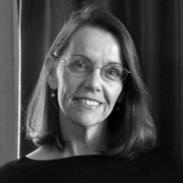 Today we are pleased to feature Deborah Bogen as our Authors Talk series contributor.
Today we are pleased to feature Deborah Bogen as our Authors Talk series contributor.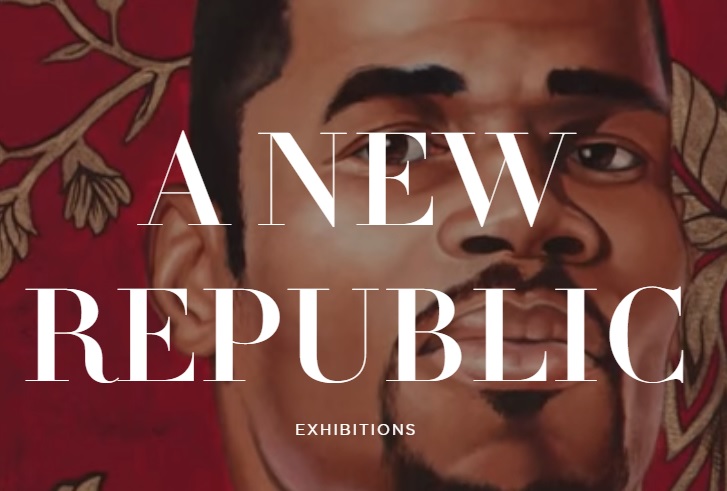
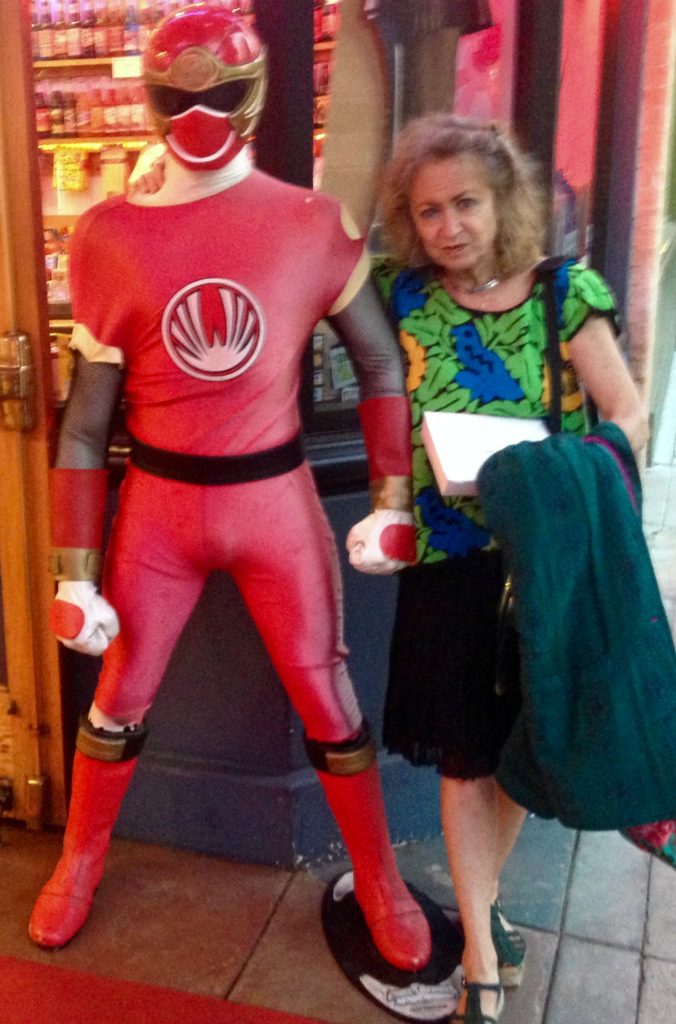
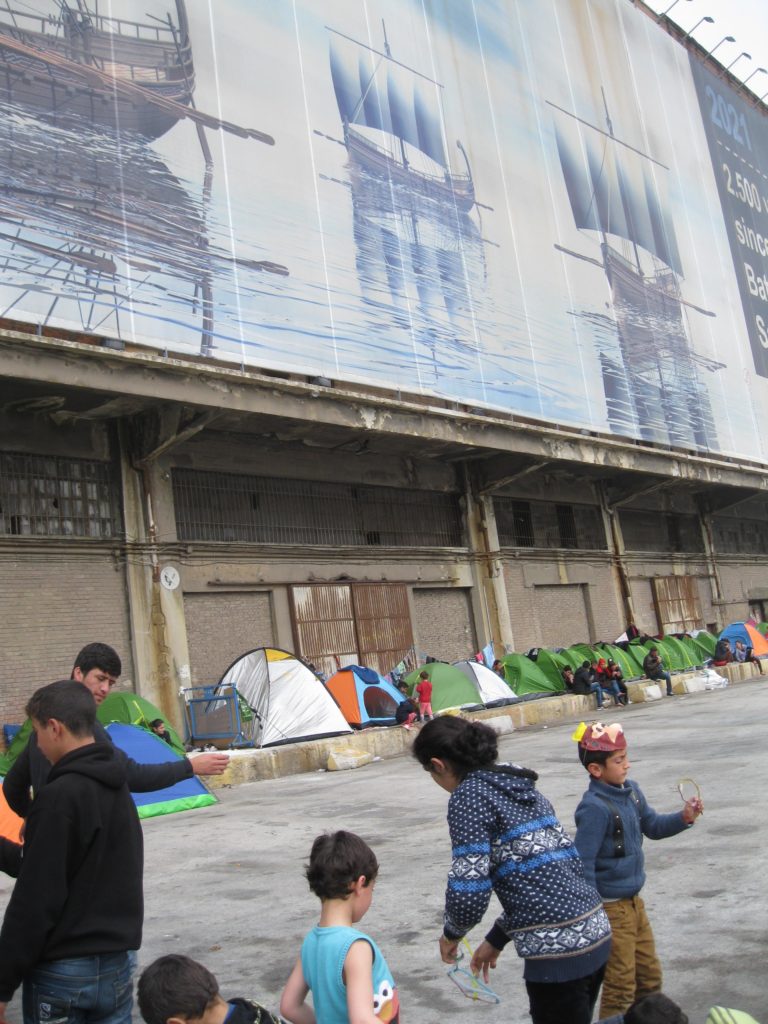
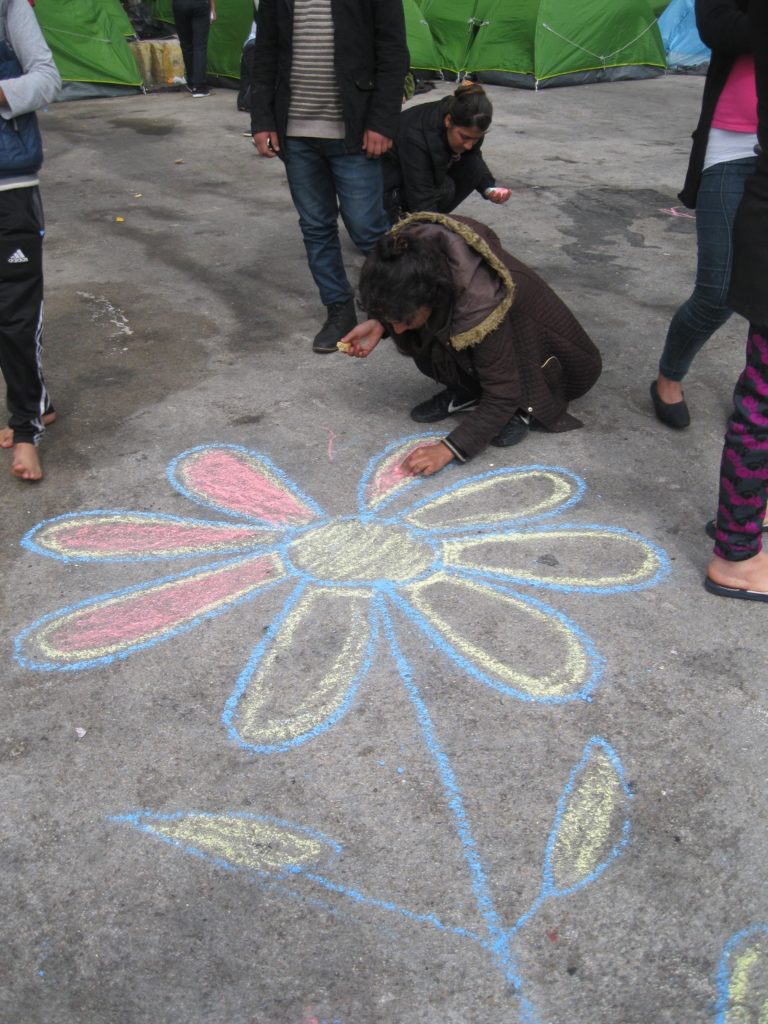
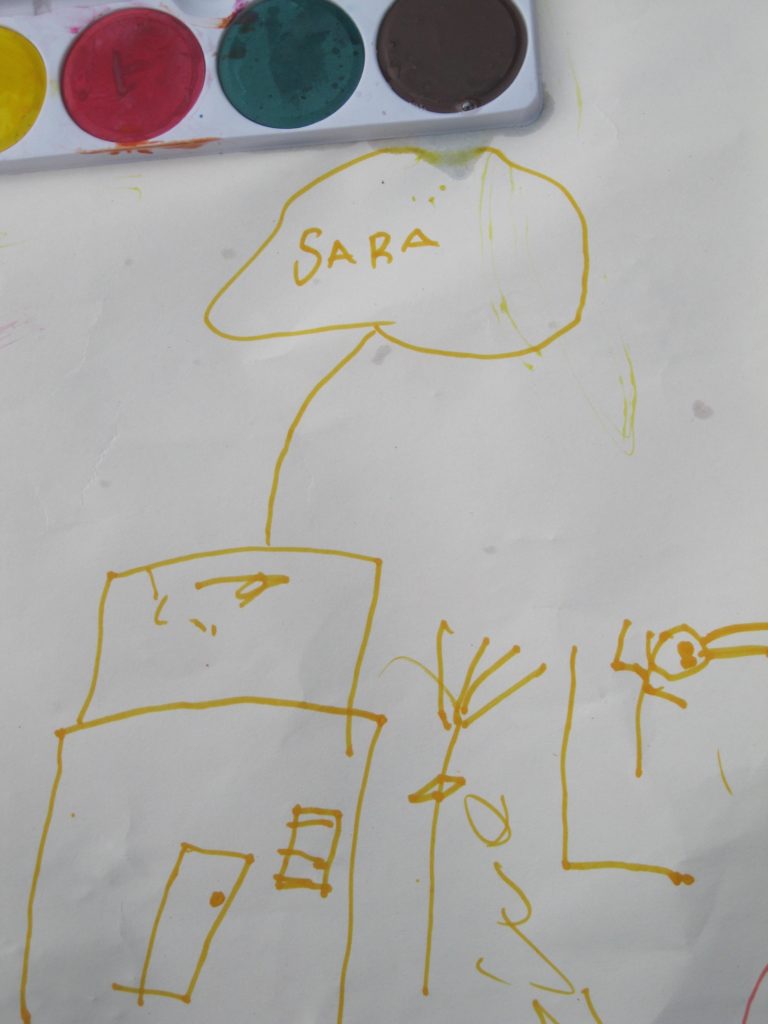
 Wednesday, February 24th from 12pm-1pm, ASU instructor Lori Eshleman (College of Letters and Sciences) will be giving a book discussion on her novel
Wednesday, February 24th from 12pm-1pm, ASU instructor Lori Eshleman (College of Letters and Sciences) will be giving a book discussion on her novel 
